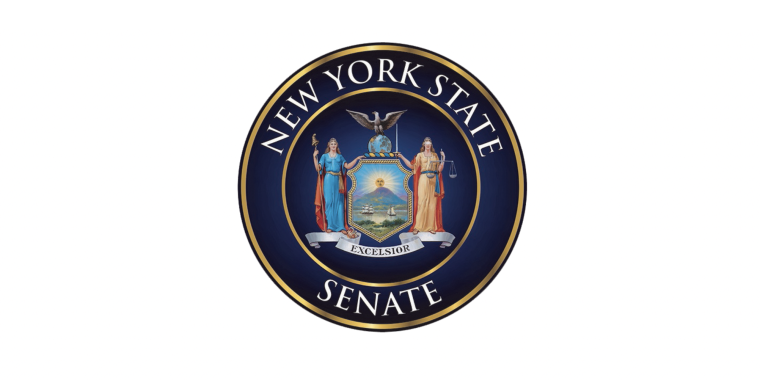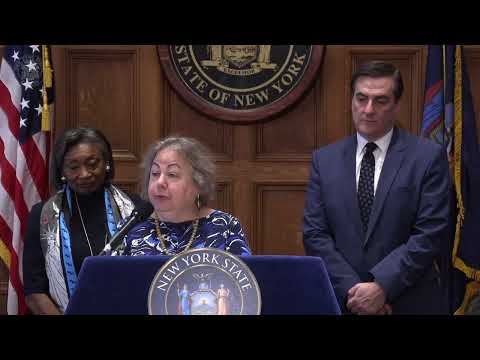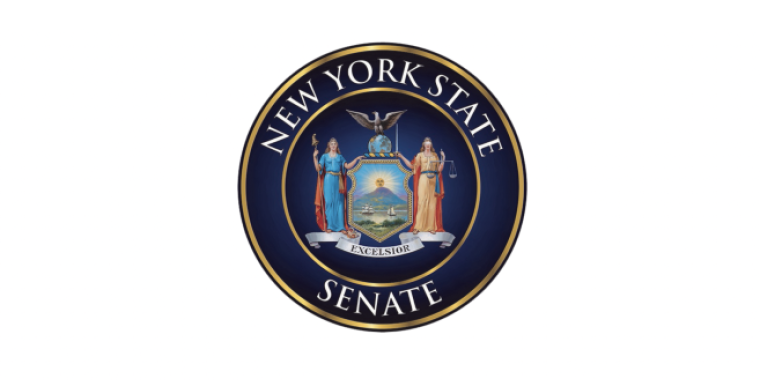
Testimony Before the Industrial Development Agency Regarding Additional Tax Free Financing for Stadiums for the New York Yankess and New York Mets on January 15 , 2009
Liz Krueger
July 15, 2010
I am State Senator Liz Krueger and I represent the 26th Senatorial District, which includes Midtown and the East Side of Manhattan. I want to thank the IDA for allowing me the opportunity to make a statement regarding concerns that I have with the proposal for additional financing for sports stadiums for the New York Yankees and New York Mets. I am concerned that particularly in this period of economic hardship and fiscal crisis, the impacts of this financing proposal will cost all levels of government substantial revenue, without providing commensurate benefits in the form of job creation and economic development.
The current proposal calls for granting the New York Yankees an additional $259,000,000 in city, state and federal tax-free financing and $111,900,000 in federally taxable (but city and state tax-exempt) bonds, along with $60,000,000 in tax-exempt refunding bonds. The proposal for the Mets calls for an additional $82,280,00 in tax-free financing. This funding is in addition to $940 million in tax exempt bonds already issued for the Yankees and $615 million for the Mets. In addition, the new Yankee Stadium is being built on land given to them by New York City at no cost.
My objections to these additional requests for financing fall into three categories. First, these tax expenditures are not necessary to ensure the development of the project. There is no real threat that these stadium projects will not be completed if additional tax exempt financing is not approved. Any economic development expenditures should be subject to a test as to whether the purported benefits of the proposal would occur regardless of the expenditure. There can be little question that this latest round of financing does not meet this test.
My second objection is that the amount of public resources being expended on this project are completely out of proportion with the job creation benefits of the project. According to the Yankees, the new stadium will only create 22 additional permanent, full-time jobs and 253 non-permanent, part-time jobs. No commitments have been made regarding wages and benefits for the part-time workers. Others have done more comprehensive analysis that suggests that sports stadiums are not a cost-effective engine for economic development, and these limited economic benefits offered by these projects are simply not in proportion with the level of public support that is being provided.
The current system for corporate tax expenditure deals, so commonly used in our City, has raised many questions and concerns by the public and elected officials. Hence, I have introduced the State Corporate Accountability for Tax Expenditures Act. The ultimate goal of the Act is to provide a comprehensive record of all economic development incentives that are entered into between state entities and businesses in order for the Legislature and the Governor to make well informed decisions about tax expenditures. The bill requires that state economic assistance provided by any state agency, public authority or public benefit corporation, as an incentive to a business organization must be based on the terms of a written incentive agreement between the department and the business organization. Most importantly, the Act mandates that if a business organization either fails to make the requisite level of capital investment in the project or fails to create or retain the specified number of jobs within the specified time frame, the business organization shall be deemed to no longer qualify for State economic assistance.
My third objection to this proposal involves the loss of tax revenue that approval of this proposal would cause to all levels of government. The cost benefit analysis for the Yankees proposal indicates that New York City will lose $38,400,000 in sales and income taxes. However, this is just the tip of the iceberg in terms of the actual costs of the project to local, state and federal governments. Since repayment of the bonds will take the form of Payments In Lieu Of Taxes (PILOTs), the city will also be foregoing an unspecified amount of property tax revenue for at least the next 40 years. Of even greater concern to me as a State Senator is the loss of sales and income tax revenue to the State of New York. The cost benefit analysis does not consider this cost, and in this period of fiscal crisis, New York can ill afford to sacrifice revenue, particularly to support a project that will be completed regardless of whether it receives this support. At the State and City level we are right now cutting budgets for critical programs. If we are giving up more tax revenue, we better make sure it is for something more important that the painful cuts we are making.
Economic development subsidies need to be subjected to greater scrutiny even in the best of times. In difficult fiscal periods such as we now find ourselves it is even more critical that we ensure that scarce City and State resources are not wasted. I do not believe that additional subsidies for stadiums in New York City meet the basic tests that should be applied to economic development projects, and therefore urge the IDA to reject these proposals.
Thank you for the opportunity to submit testimony on these proposals.
Share this Article or Press Release
Newsroom
Go to NewsroomThe Impact of Casinos on Urban Communities
February 23, 2024

An Open Letter From Jewish Elected Officials Regarding The War In Gaza
February 20, 2024


